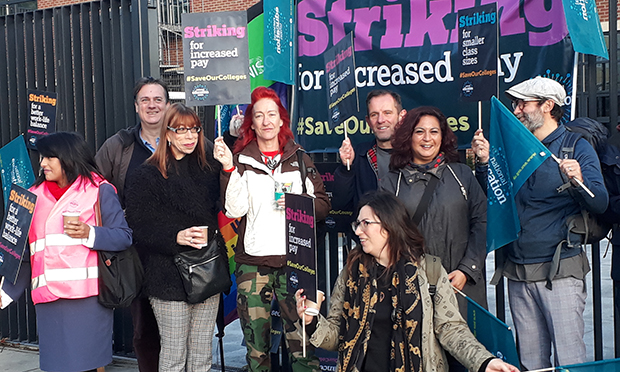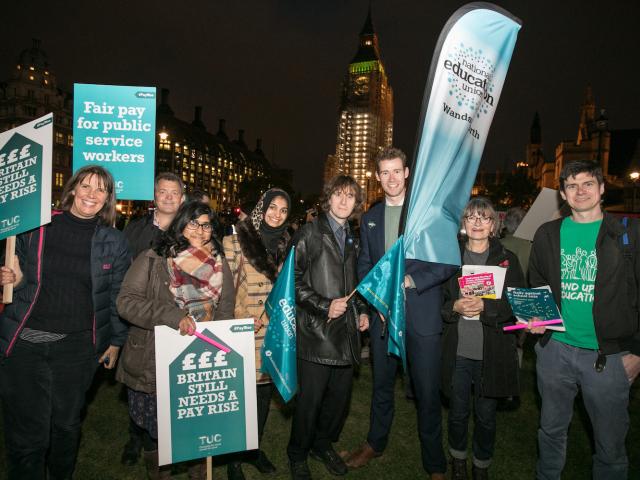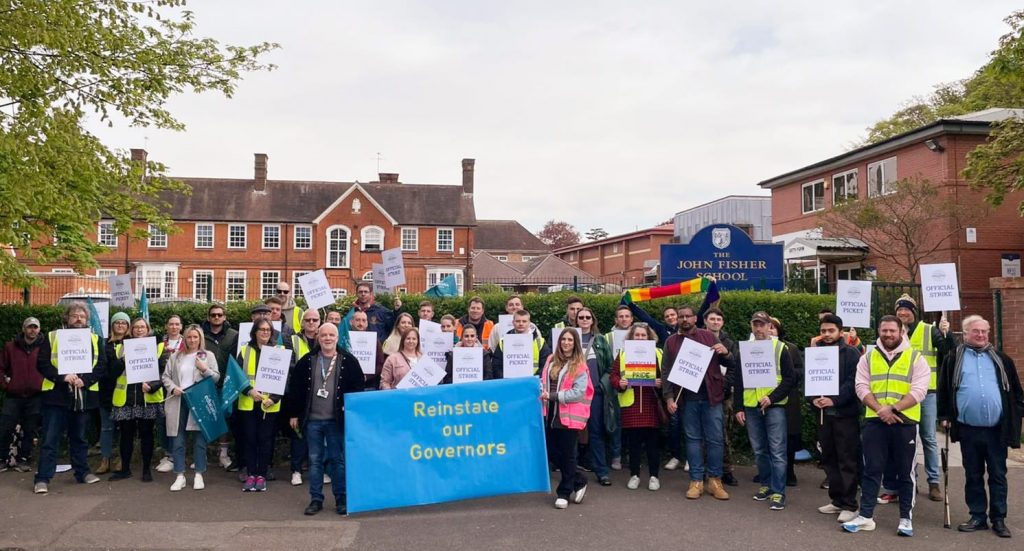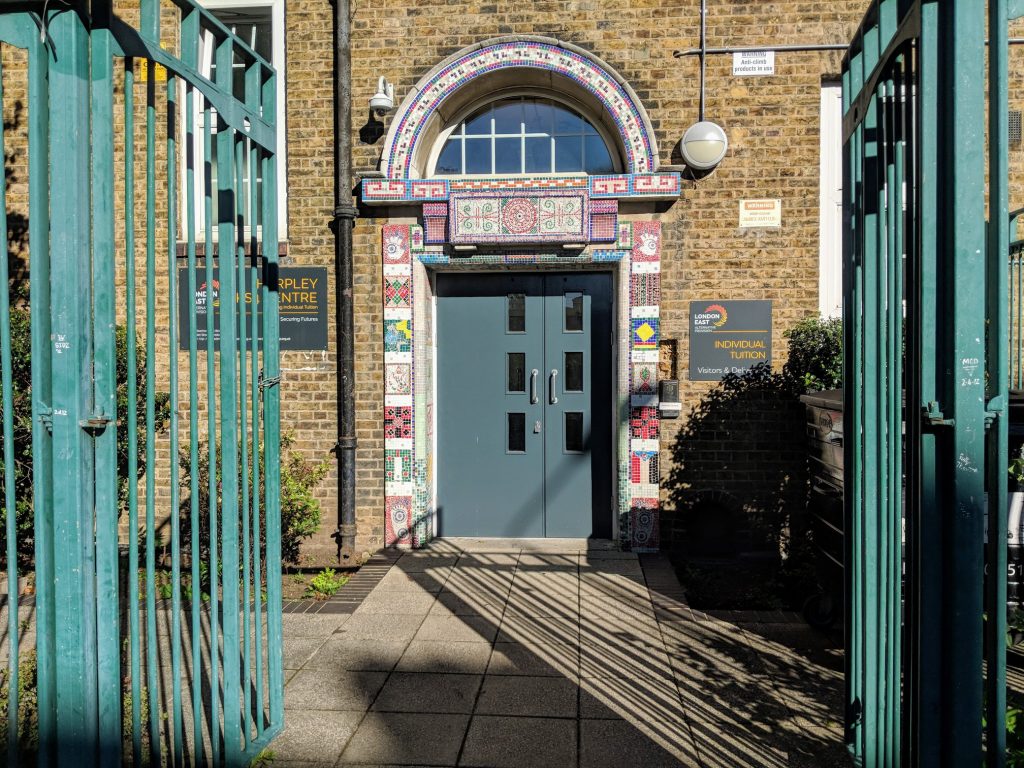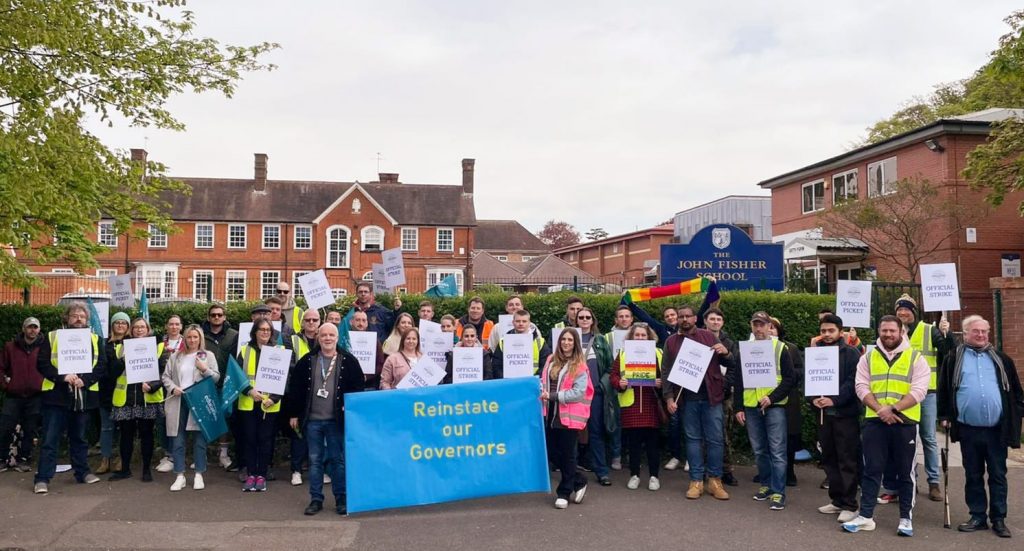Blood Money
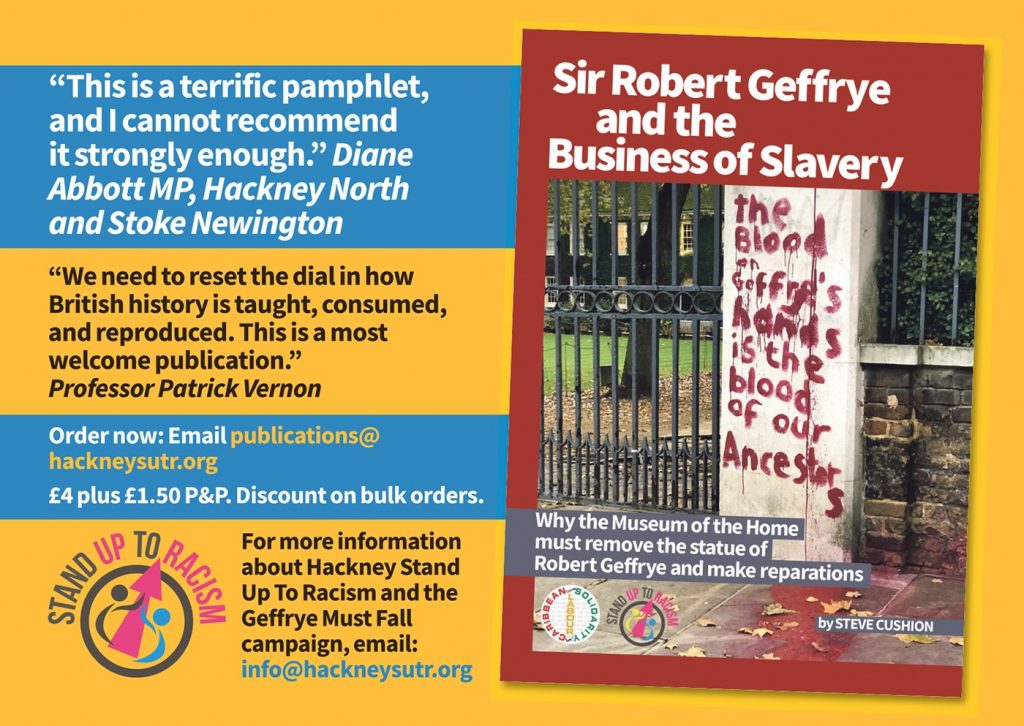
Review of ‘Sir Robert Geffrye and the Business of Slavery by Steve Cushion (Caribbean Labour Solidarity & Hackney Stand Up To Racism, 2022)
by Andrew Stone, a head of history in a south London college
June 2020, and I welcomed back our students for their first in-person lesson since the March lockdown. Tentatively directed to separate desks, everyone masked, sanitiser at the ready.
And then we discussed and researched the felling of Edward Colston’s statue in Bristol; the preceding campaign to highlight his role in the slave trade; the lineage of non-violent direct action; the alternative options for commemoration.
No doubt this would horrify the culture warriors in the Tory party and right-wing press. How dare we seek to erase history? How dare I impose lefty woke cultural Marxism etcetera, etcetera.
Of course good history teaching does nothing of the sort. It recognises that history is constantly being reframed and reimagined, that memorialisation is always contested, and is as much a product of the present as the past.
And 2020 was not just the year of Covid, it was the year of the global Black Lives Matter rebellion after George Floyd’s shameless murder. And to slay the demon of racism in the modern world many decided that they needed to pull down the monuments celebrating those who built it.
Which brings us to Steve Cushion’s excellent pamphlet. The statue that ‘graces’ Hackney’s Museum of the Home (formerly the Geffrye Museum), may not be quite as notorious at that of Edward Colston, but its model was no less implicated in the barbarism of chattel slavery.
Arguably he was even more central to its workings, and in particular its links to the development of capitalism within England, and Cushion has done teachers, as well as social justice activists, a real service in pulling together the research that illustrates this.
Cushion explains how Geffrye was one of the original 200 investors into the Royal African Company that, between 1672 and 1713, transported 170,000 enslaved Africans across the ‘middle passage’ of the Atlantic.
It was involved in every grubby aspect of the ‘triangular trade’, owning several slave factories and forts on the West African coast and importing products, particularly sugar, grown in horrendous conditions in Caribbean plantations.
This was no shadowy enterprise. As Cushion states, “The Royal African Company acted as a get-rich-quick racket for the Stuart royal family, Charles II and James II, along with their cronies and backers from the City of London, amongst whom we find Geffrye.”
In the early days of James’s rule Geffrye was appointed Lord Mayor of London and led a Tory clique alongside his near-namesake, ‘The Hanging Judge’, George Jeffreys, using paid informers to root out ‘sedition’ in London.
But like any good cut-throat capitalist, Geffrye switched allegiances as James increasingly alienated his wealthy subjects with his autocratic ambitions, and as ‘interlopers’ challenged the monopoly of the African slave trade.
Did he at this point have an epiphany and devote himself solely to charitable endeavours? No, he devoted himself more fully to his other main investment, in the East India Company, in which he retained a stake of £6,433 when he died (equivalent to almost £15 million in today’s money).
And as Cushion explains, though at this time the Company had not yet become the military behemoth that it would evolve into, it was still intricately connected with the Atlantic trade, and indeed did enslave and transport people from Madagascar itself.
I would strongly recommend this pamphlet for history educators. It has a wealth of research accessibly explained, so would be suitable for use directly with key stages 4 and 5, and as a primer for those teaching younger children as well.
Importantly, it contextualises the history in the debate around statues as memorials, it explains the key role that the resistance of the enslaved played in abolition, and explores issues such as reparations and why the government today is intervening to preserve the statue. It also makes the case for this as a trade union issue.
With an Ofsted report on how we should apparently teach history imminent, it will be a useful resource for everyone who understands the importance and defends the principles of decolonising the curriculum.
Copies can be ordered by emailing [email protected] (£4 plus £1.50 postage and packing, with reductions for bulk orders.)
Book Launch event
If you’re in or can get to London on Friday 10th June come an join the book launch author Steve Cushion will speak on the book and on the real story of Sir Robert Geffrye.
It’s at the Bookmarks bookshop at 6.30pm at 1 , Bloomsbury Street, London WC1B 3QE
Facebook event with full details here: https://www.facebook.com/events/708481973745010/?acontext=%7B%22source%22%3A%2229%22%2C%22ref_notif_type%22%3A%22plan_user_invited%22%2C%22action_history%22%3A%22null%22%7D¬if_id=1653242217918646¬if_t=plan_user_invited&ref=notif

